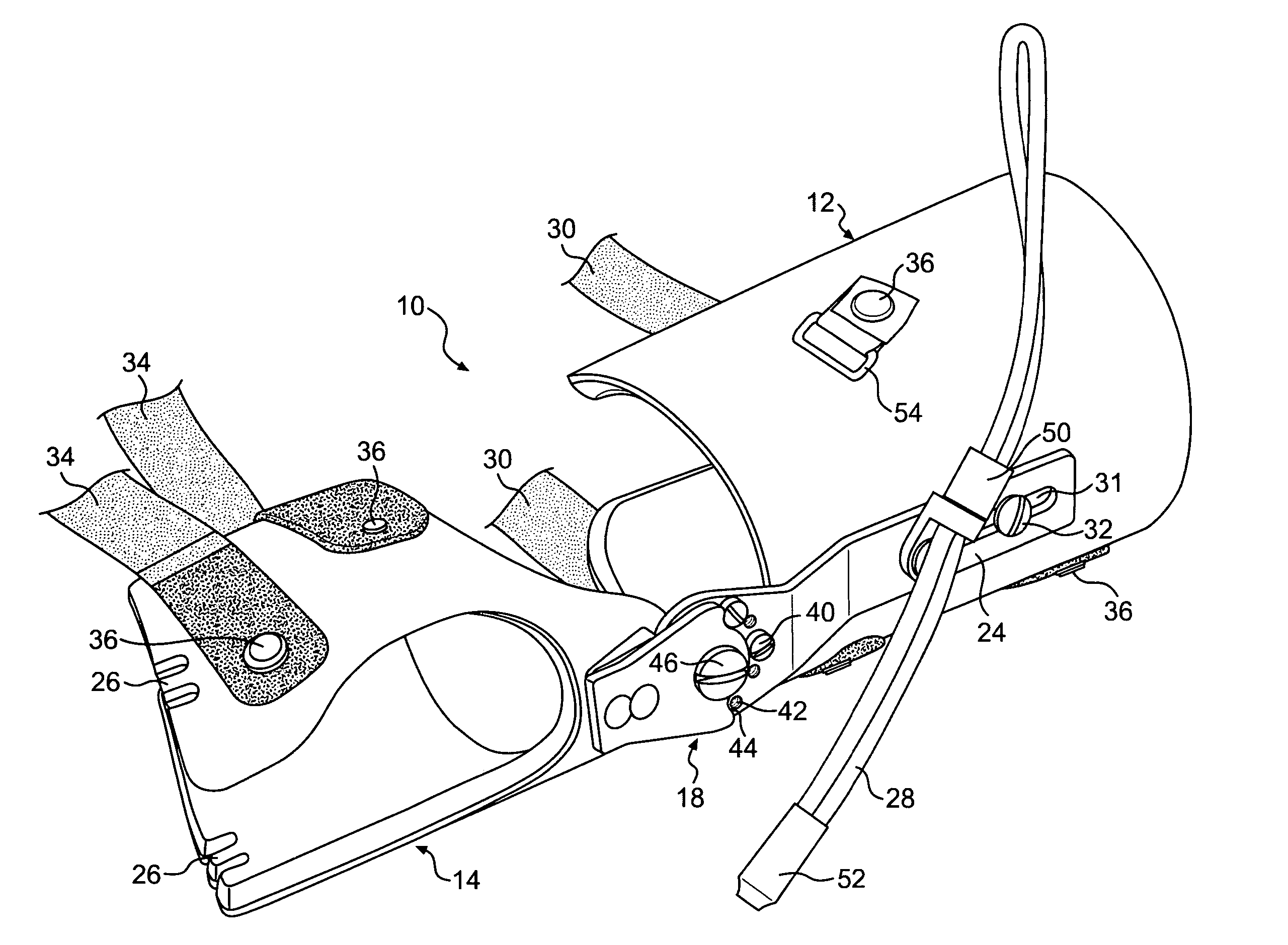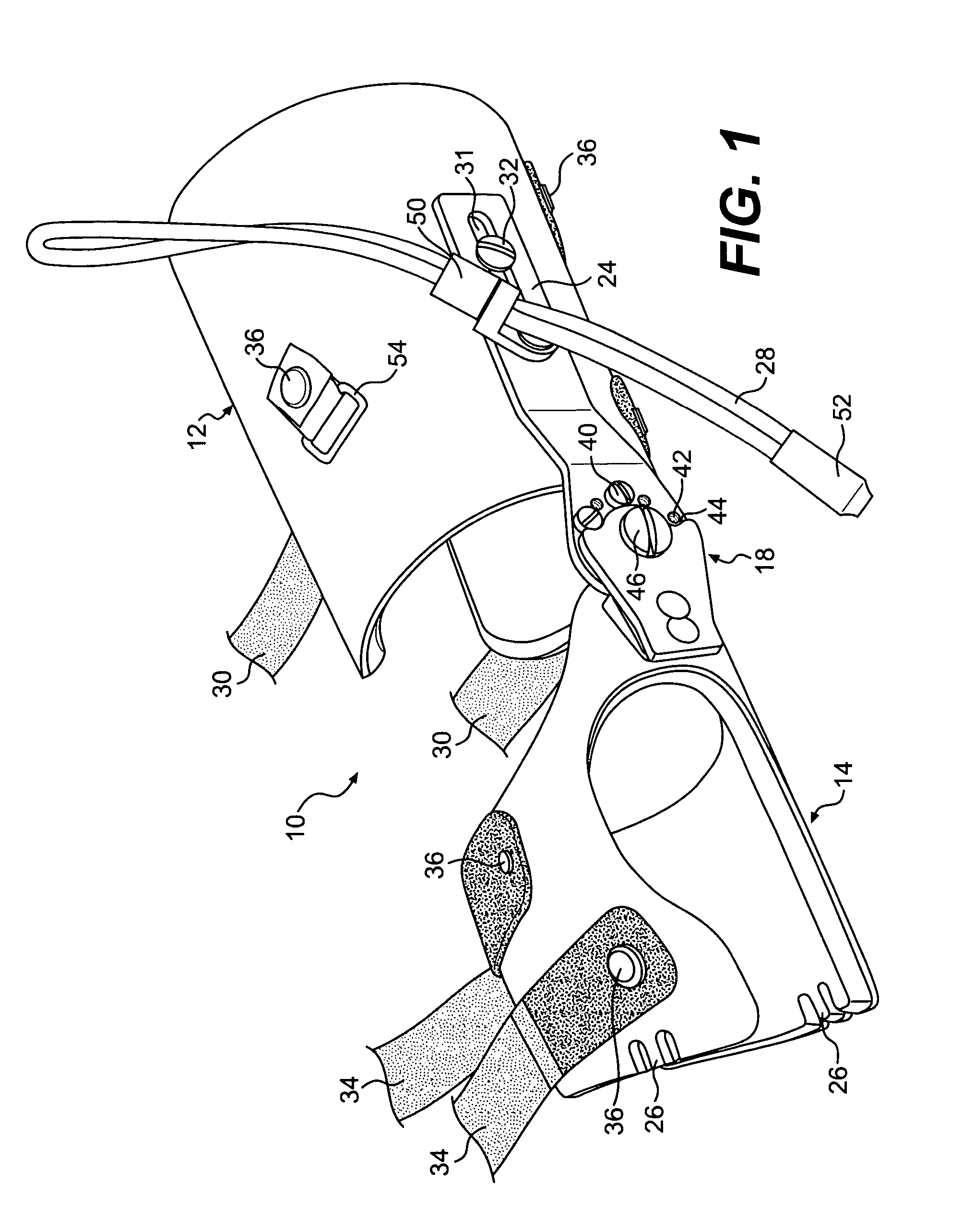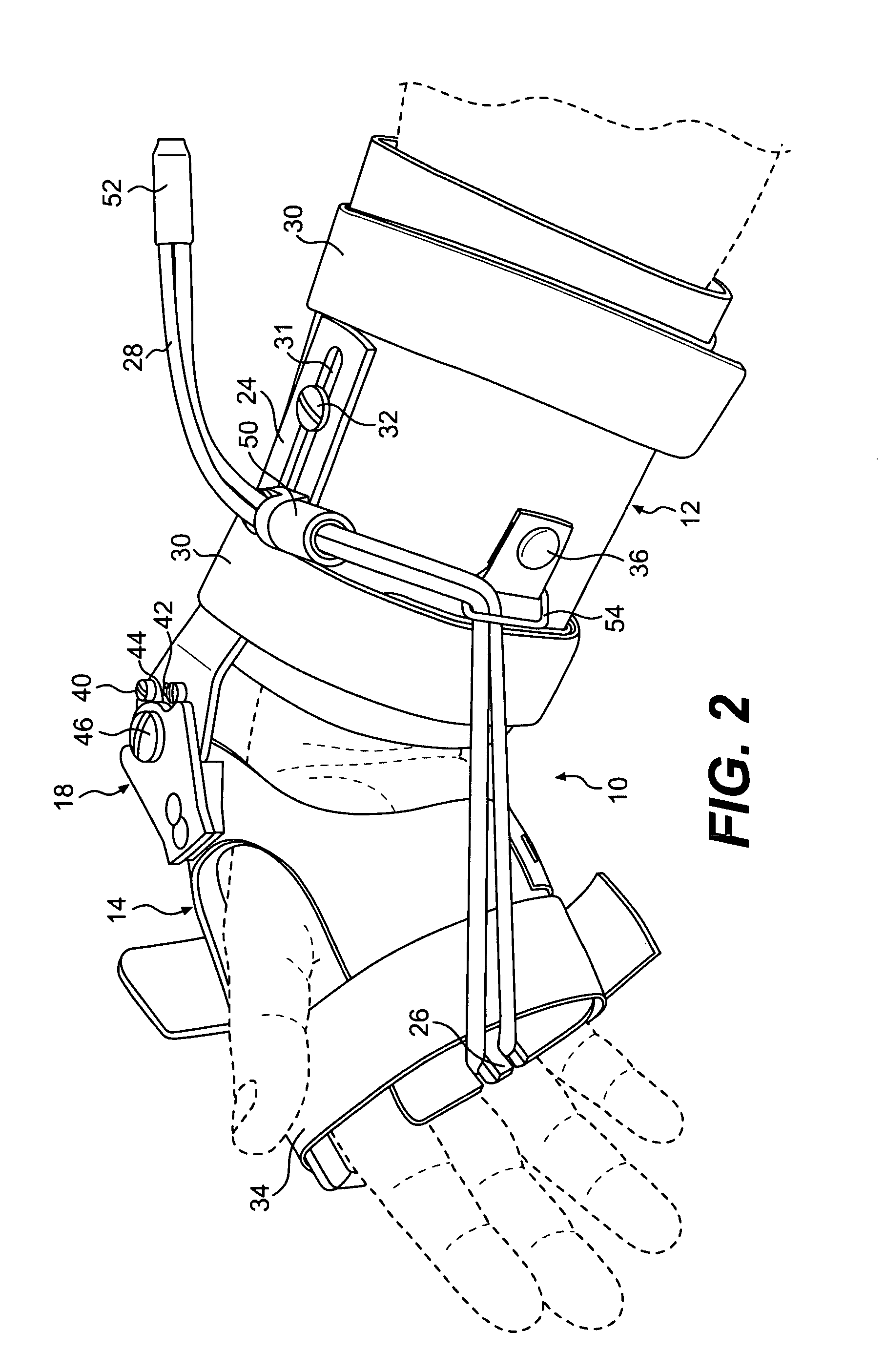Flexion and extension device
a wrist extension and wrist technology, applied in the field of orthopaedic devices, can solve the problems of uneven force across the device, interfere with the patient's freedom of movement and comfort, and the existing device is often difficult to customize to meet the needs of a particular patient, so as to promote flexion and extension of the wrist and enhance comfort and/or rotational positioning
- Summary
- Abstract
- Description
- Claims
- Application Information
AI Technical Summary
Benefits of technology
Problems solved by technology
Method used
Image
Examples
Embodiment Construction
[0015] The present invention is directed to an orthotic device used to promote flexion and / or extension of a patient's wrist. Positioning of the wrist in which the wrist is bent such that palm of the hand is facing downward, or passively conforming to gravity when arms are extended, is called flexion. Positioning in which the wrist is bent such that the palm of the hand is pulled upward or skyward, against the force of gravity when arms are extended, is called extension. The orthotic device described herein can apply either dynamic or static forces to fix or limit a wrist's flexion or extension, and may also provide positioning or support that constrains ulnar or radial deviation of a wrist. Further, both the positioning as well as degree of movement permitted by the device may be adjusted by a user or therapist in accordance with the needs or therapeutic plan for a patient.
[0016] Referring to the drawings, FIGS. 1, 2, and 3 illustrate an orthotic device in accordance with an examp...
PUM
 Login to View More
Login to View More Abstract
Description
Claims
Application Information
 Login to View More
Login to View More - R&D
- Intellectual Property
- Life Sciences
- Materials
- Tech Scout
- Unparalleled Data Quality
- Higher Quality Content
- 60% Fewer Hallucinations
Browse by: Latest US Patents, China's latest patents, Technical Efficacy Thesaurus, Application Domain, Technology Topic, Popular Technical Reports.
© 2025 PatSnap. All rights reserved.Legal|Privacy policy|Modern Slavery Act Transparency Statement|Sitemap|About US| Contact US: help@patsnap.com



